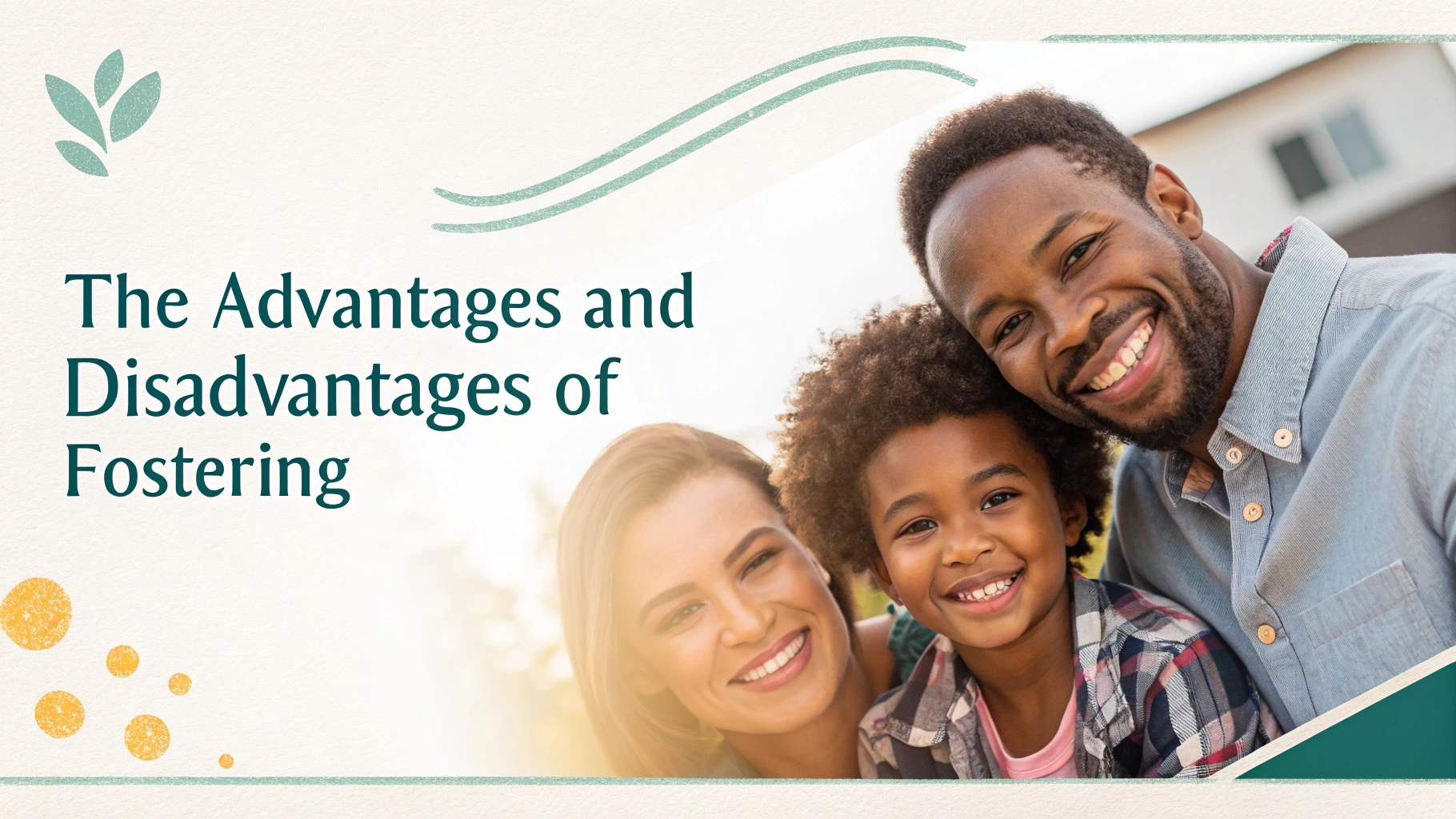Fostering means taking care of a child who cannot live with their own family. Foster parents provide a safe and loving home for these children until they can return to their families or find a permanent home. Fostering can be a rewarding experience, but it also comes with challenges. This blog will explain the benefits and difficulties of fostering to help people decide if it is right for them.
The Advantages and Disadvantages of Fostering
Advantages of Fostering
1. Helping a Child in Need
One of the biggest benefits of fostering is that you can change a child’s life for the better. Many foster children have gone through difficult experiences, such as neglect or abuse. By giving them love, care, and stability, foster parents help these children feel safe and grow into happy and healthy individuals.
2. Personal Fulfillment
Fostering is not just good for the child, it is also rewarding for the foster parents. Many people feel a sense of purpose and joy from helping a child in need. Fostering teaches patience, kindness, and understanding. Seeing a child thrive because of your care can be a heartwarming experience.
3. Financial Support
Fostering is a commitment, but financial help is available. The government and foster care agencies provide money to cover the child’s food, clothing, school needs, and medical care. This support helps foster parents take care of the child without worrying about extra costs.
The SASSA Foster Child Grant
In South Africa, foster parents can apply for the SASSA Foster Child Grant. This grant is given by the South African Social Security Agency (SASSA) to help foster parents with the costs of raising a child. Foster parents receive a monthly payment to assist with food, school fees, clothing, and healthcare. To qualify, they must have a legal foster care order from the court.
4. Strengthening Family Bonds
Fostering can bring families closer together. It teaches children in the household about kindness, sharing, and understanding others. It can also help family members work together to care for the foster child, creating a strong sense of teamwork and love at home.
5. Possibility of Adoption
Sometimes, fostering leads to adoption. If a foster child cannot return to their biological family, their foster parents may have the chance to adopt them. This allows the child to have a permanent home with a loving family.
Disadvantages of Fostering
1. Emotional Challenges
Fostering can be emotionally difficult. Foster parents often form strong bonds with the children, so it can be heartbreaking when they have to leave. Saying goodbye to a child you have cared for can be tough, and foster parents must be emotionally strong to handle this.
2. Behavioral and Emotional Difficulties
Many foster children have been through hard times, which can affect their behavior. They may have trust issues, anxiety, or emotional outbursts. Foster parents need patience and understanding to help them feel safe and loved. Some children may also need therapy or counseling, which can take time and effort to arrange.
3. Changes in the Household
Bringing a foster child into the home can change the family’s daily routine. Biological children may need time to adjust to having a new sibling. Fostering can also be stressful for couples, as it requires time, effort, and patience. Good communication and teamwork are important to make fostering work.
4. Complicated Rules and Paperwork
Foster parents must follow many rules and go through a long process before they can care for a child. There are background checks, home visits, court hearings, and regular meetings with social workers. Some people may find these steps frustrating and time consuming.
5. Uncertainty About the Child’s Future
Foster parents do not have full control over what happens to the child. Decisions about the child’s future are made by social workers and the courts. This can be difficult for foster parents who grow attached to the child but have no say in where they will live in the long term.
Fostering is a meaningful way to help children in need, but it is not easy. The benefits such as making a difference in a child’s life, personal growth, financial support, and family bonding—can be deeply rewarding. However, the emotional challenges, behavioral difficulties, legal processes, and uncertainty can be challenging.
If you are thinking about fostering, it is important to do research, talk to experienced foster parents, and prepare yourself emotionally. With proper training and a strong support system, fostering can be a life changing experience for both you and the child. If you are ready to open your heart and home, fostering can be one of the most rewarding journeys of your life.
